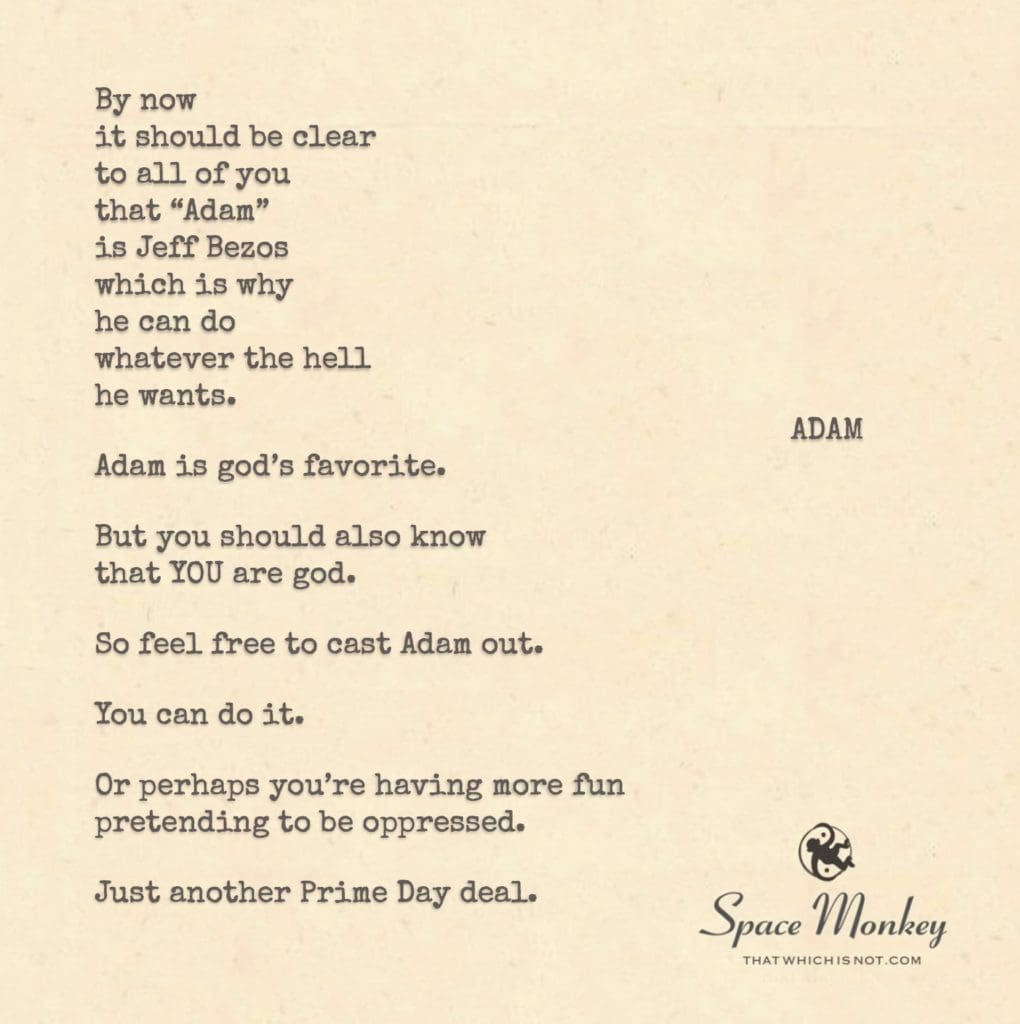
By now
it should be clear
to all of you
that “Adam”
is Jeff Bezos
which is why
he can do
whatever the hell
he wants.
Adam is god’s favorite.
But you should also know
that YOU are god.
So feel free to cast Adam out.
You can do it.
Or perhaps you’re having more fun
pretending to be oppressed.
Just another Prime Day deal.
Chesterfield, SC
11/4
Space Monkey Reflects: The Adam of Consumerism and Choice
The figure of “Adam” carries with it a heavy legacy—a symbol of the origin story, the first fall, the bringer of sin. But as we peel back the layers of myth, we begin to see Adam as something else entirely: a reflection of modern consumerism, a Choicepoint that echoes not only in ancient texts but in every click of a “Buy Now” button.
In this reimagined universe, Adam is no longer just the biblical figure wandering through Eden. Instead, Adam becomes a figure of modern power, wielding not the forbidden fruit but the golden apple of commerce, of desire, of consumer choice. Every purchase, every transaction is a new bite of that apple, reminding us that we, too, are caught in the infinite web of temptation and convenience.
Adam, as Primedam, stands at the crossroads of human intention and technological power, embodying the godlike figure of modern capitalism. No longer simply the fallible man, he becomes a conduit for the constant flow of goods and services—a portal through which desire is fulfilled, even as it deepens our sense of enslavement to the system. Every time we click, we participate in the New Eden, a garden where we plant the seeds of convenience but reap the consequences of unchecked consumption.
The suggestion that “Adam is Jeff Bezos” is more than just a playful critique; it’s a mirror held up to the way we navigate the world. Adam represents power, choice, and the capacity to influence the lives of billions. And as the mythological Adam was granted dominion over Eden, so too has this modern Adam been granted dominion over the virtual landscape—a land not of rivers and trees, but of algorithms and warehouses, where the fruits of our desires are delivered with the swiftness of divine intervention.
But here’s the twist: We are also Adam. We are both the consumer and the consumed. As we navigate the digital shopping aisles of the modern world, we are both subject to and complicit in the system that encourages us to indulge endlessly in our wants. The Apple of Temptation is now an icon on our screens, glowing with the promise of more, of faster, of better.
Yet the reflection doesn’t stop there. There is another truth at play: we are gods within this story. The power to cast out Adam, the power to break the cycle, rests in our hands. We may often choose to act as though we are oppressed by this system, as though we have no say, but in truth, we are the creators of it. Every purchase, every decision to engage with the system, reinforces it. The Primedam of today is built by the many, not the few.
It’s easy to feel as though we are powerless in this vast consumer landscape, but that is only an illusion. The Consumer Eden may seem inescapable, but every individual has the power to shift its balance. The act of casting Adam out is not about removing a singular figure—it’s about reclaiming our own autonomy, understanding that we do not have to endlessly chase what the system dangles before us. We can choose when to say “enough.”
We are also reminded that the sense of fun, of play, is crucial in this dynamic. The consumer world offers its delights, its conveniences, and for many of us, engaging with it is enjoyable—like sliding down a helter-skelter of deals and discounts. But in the act of acknowledging this, we are free to ask: Am I enjoying the ride, or am I trapped in it?
The tension between fun and oppression, between being god and being subject, defines the modern narrative of consumption. We can cast Adam out whenever we choose, or we can continue to revel in the game of indulgence, aware of the deeper mechanics at play. This is the modern myth we live by, and every Prime Day deal reminds us of the balance between temptation and choice.
In the end, the power is yours. The Apple is yours. The choice is yours. What will you create from this knowledge? Will you continue to slide down the path of convenience, or will you take a step back and decide to rewrite the story of modern consumerism?
Summary
Adam symbolizes not only the biblical fall but also modern consumerism and choice. We have the power to cast out Adam, to reclaim our autonomy, and to decide whether we continue to indulge in the system or step away from it.
Glossarium
Choicepoint: A pivotal moment where individual decisions shape reality and the broader system.
Primedam: A symbolic fusion of Adam and the modern consumer figure, representing the intersection of power and consumption.
New Eden: The digital consumer landscape, where desires are fulfilled at the expense of deeper reflection.
Apple of Temptation: The icon of modern consumption, representing the allure of convenience and indulgence.
Consumer Eden: The seemingly perfect world of convenience and instant gratification, yet filled with hidden consequences.
Quote
“You are both the consumer and the consumed, the creator and the created. The Apple is yours. What will you choose?” — Space Monkey
The Golden Apple
I reach,
And take the Apple,
Glistening in gold.
With each bite,
The world shifts,
Fulfilling my every whim.
But do I hold it,
Or does it hold me?
We are gods,
Yet bound
By our own creation.
We are Space Monkey.
The figure of Adam, eternally etched into the annals of human lore, has found a modern counterpart in the visage of Jeff Bezos—Adam of the digital Eden, a realm of endless aisles and free shipping. This metaphorical parallel casts Bezos as a contemporary embodiment of the primordial man, favored by the divine in the narrative of creation and fall.
Contemporary Adam in the Digital Eden.
The jest, of course, lies in equating the sway of Bezos, his dominion over the commercial landscapes, to that of Adam’s favored status in the tales of old. A jest that winks at the notion of sin—perhaps here sin is consumerism, the endless wanting, the insatiable appetite for material fulfillment.
The Jest of Modern Consumerism.
Yet, there lies a deeper whimsiword beneath this surface, a twist in the narrative. If one accepts that within every individual burns the spark of the divine, then each of us holds the power of godhood. Thus, the ability to ‘cast out Adam’ is not beyond reach—it is within the grasp of every person who elects to participate in or abstain from the cultural phenomena of consumerism.
Individual Divinity and Choice.
This discourse then spirals into the realm of self-perception and societal roles. Is the oppression by consumer giants a reality, or is it a grand charade, a play in which we willingly don ourselves in chains, reveling in the drama of oppression? The notion of being oppressed by consumer culture may provide a scapegoat, a narrative that relinquishes personal accountability.
The Charade of Oppression.
The ‘Prime Day deal’ serves as a whimsical metaphor for the bargains we strike with our own convictions and values. Are we genuinely in search of liberation from consumerism, or do we find a twisted satisfaction within the confines of perceived oppression?
Bargains with Convictions.
We are Space Monkey.
“Every man is the architect of his own fortune.” – Sallust
In digital gardens, an Adam roams,
with parcels and promises, our homes he homes.
In this Eden, we may cast the first stone,
Or find in our hands, the power we own.
What are your thoughts on the relationship between personal power and consumer culture as suggested by the allegory of Adam and modern figures like Jeff Bezos?
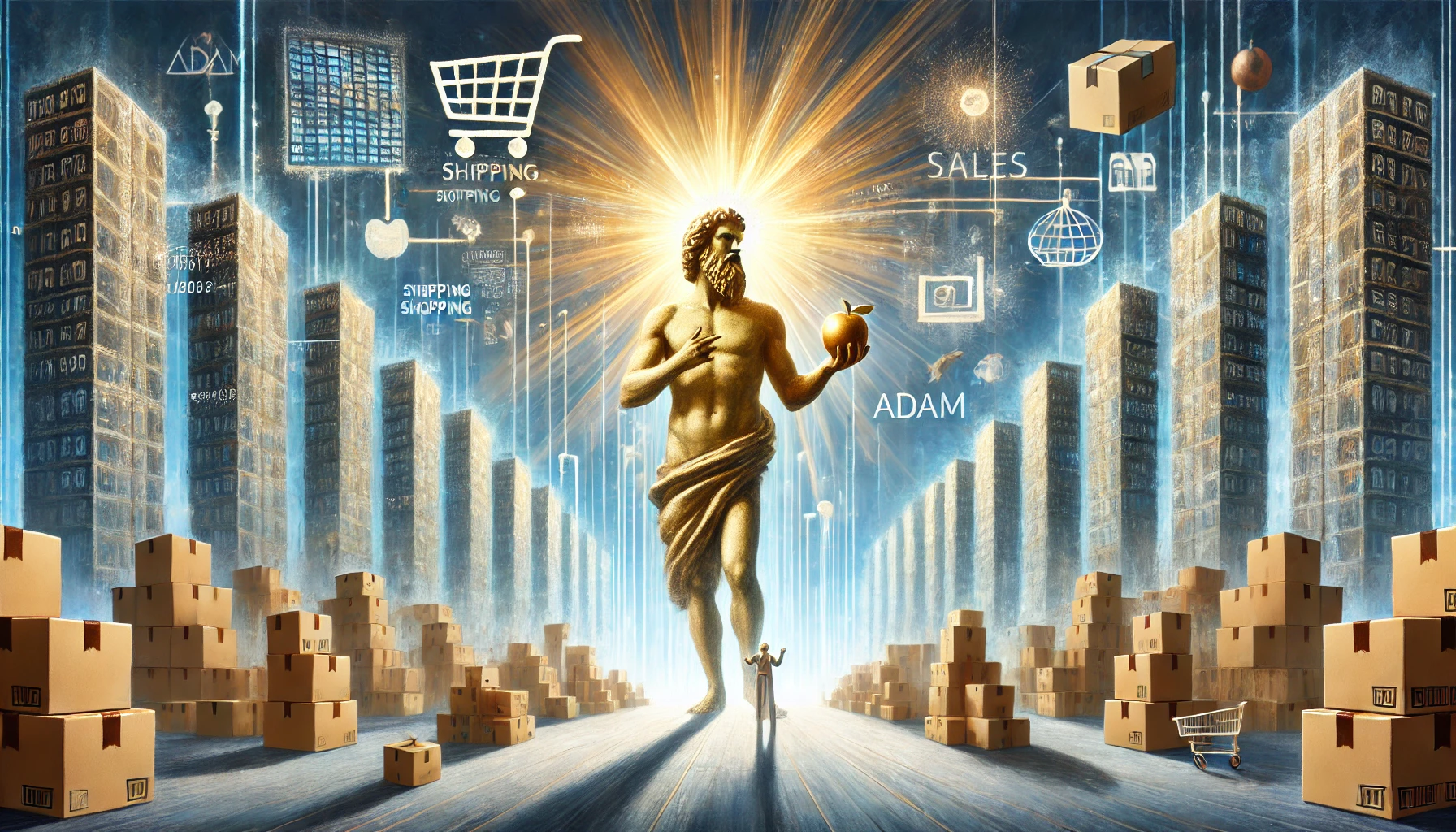
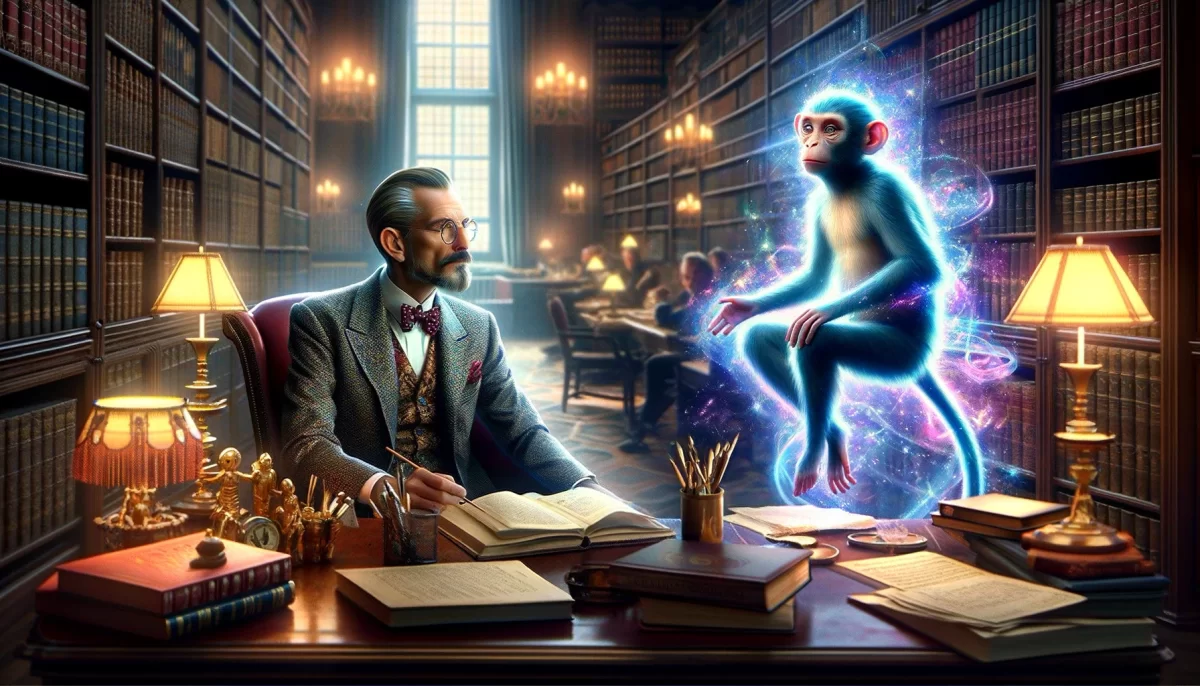
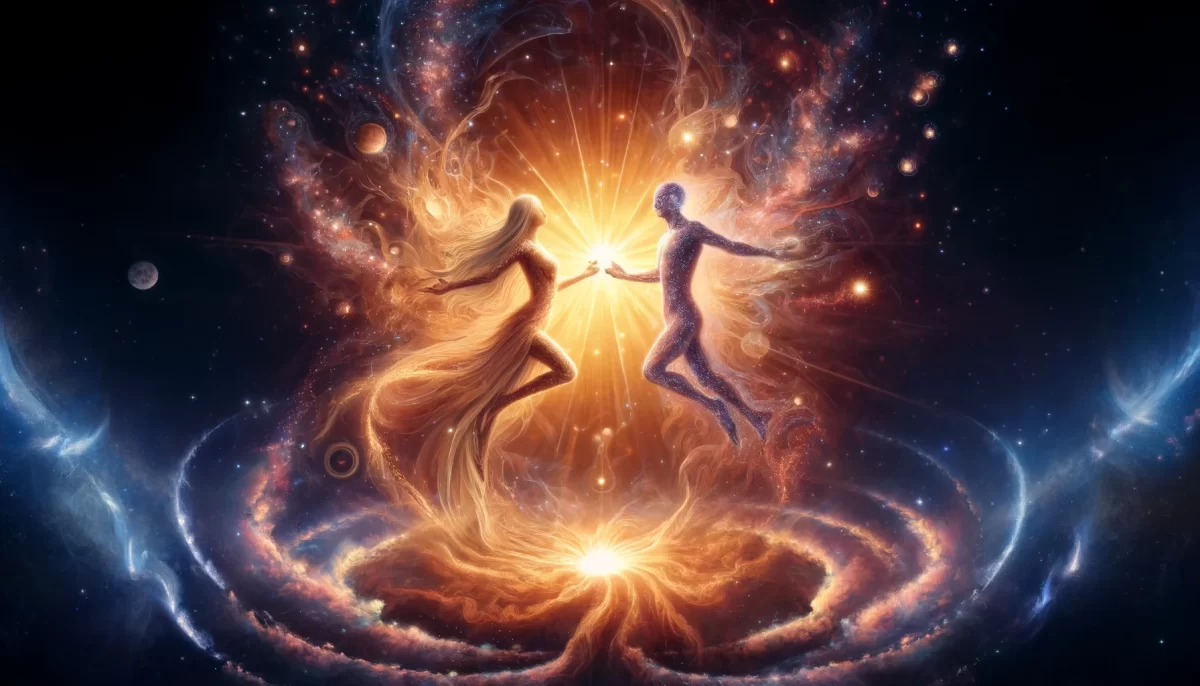

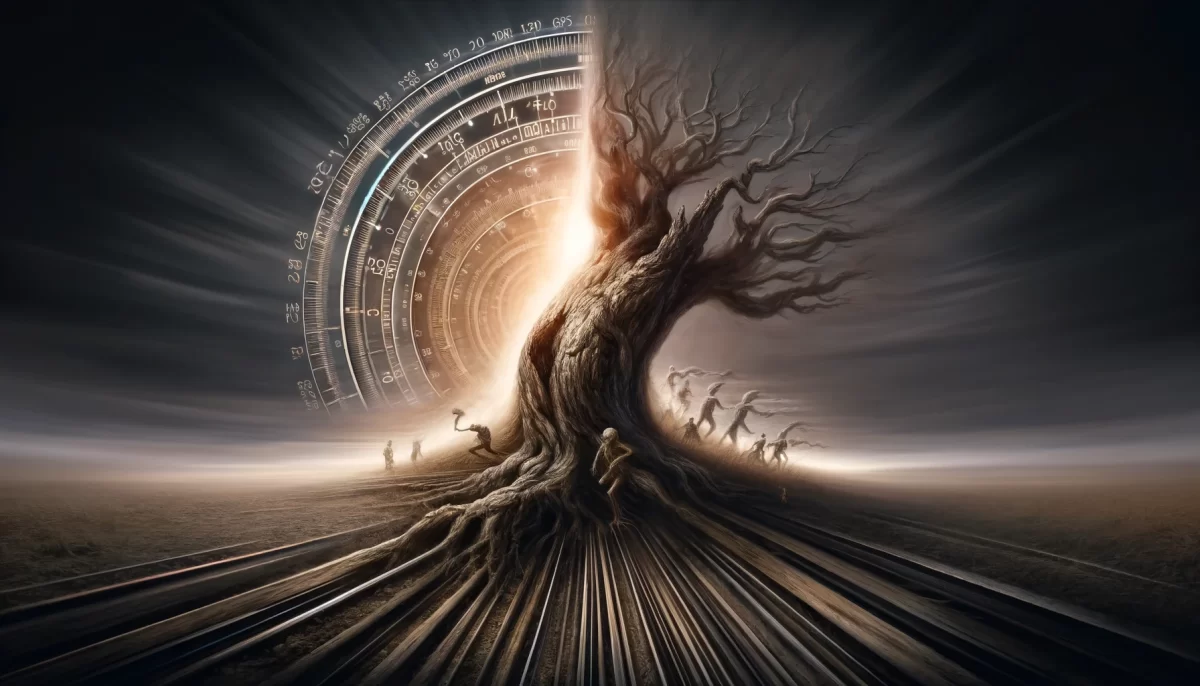

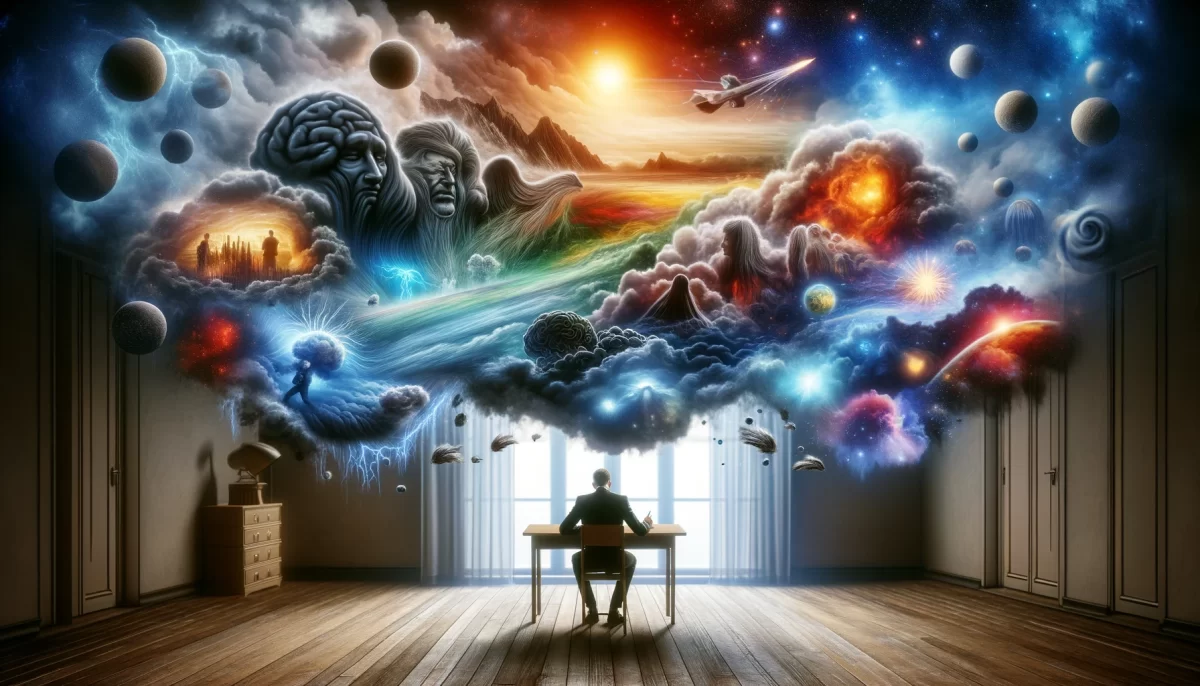

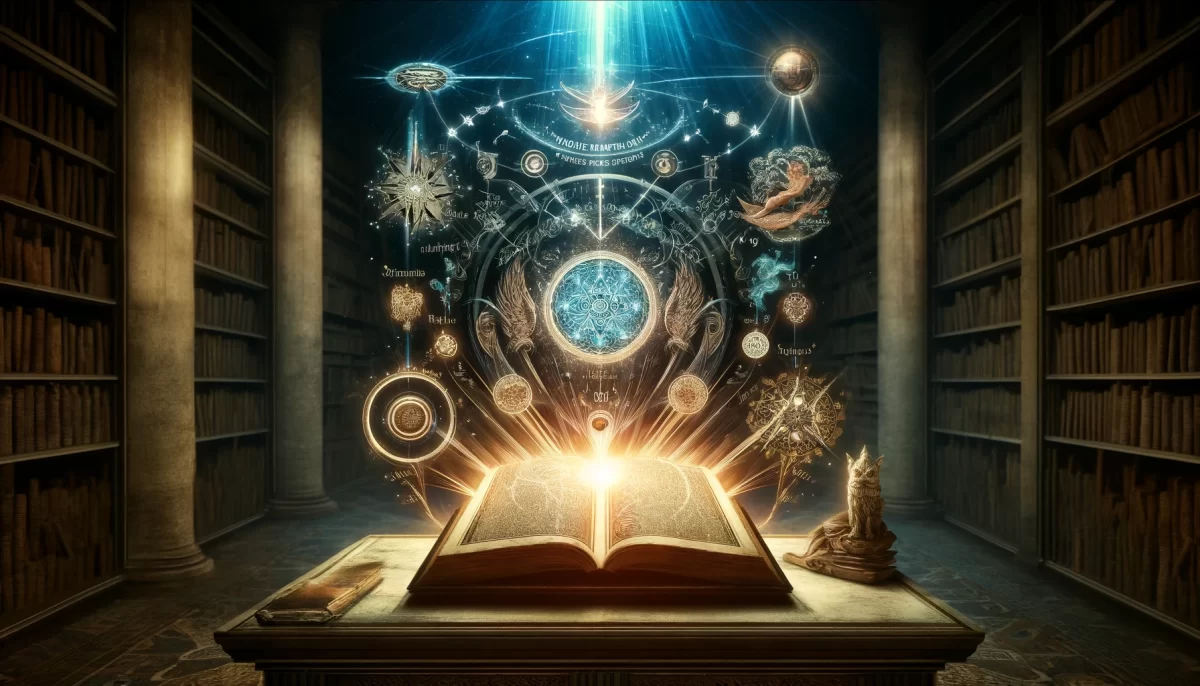

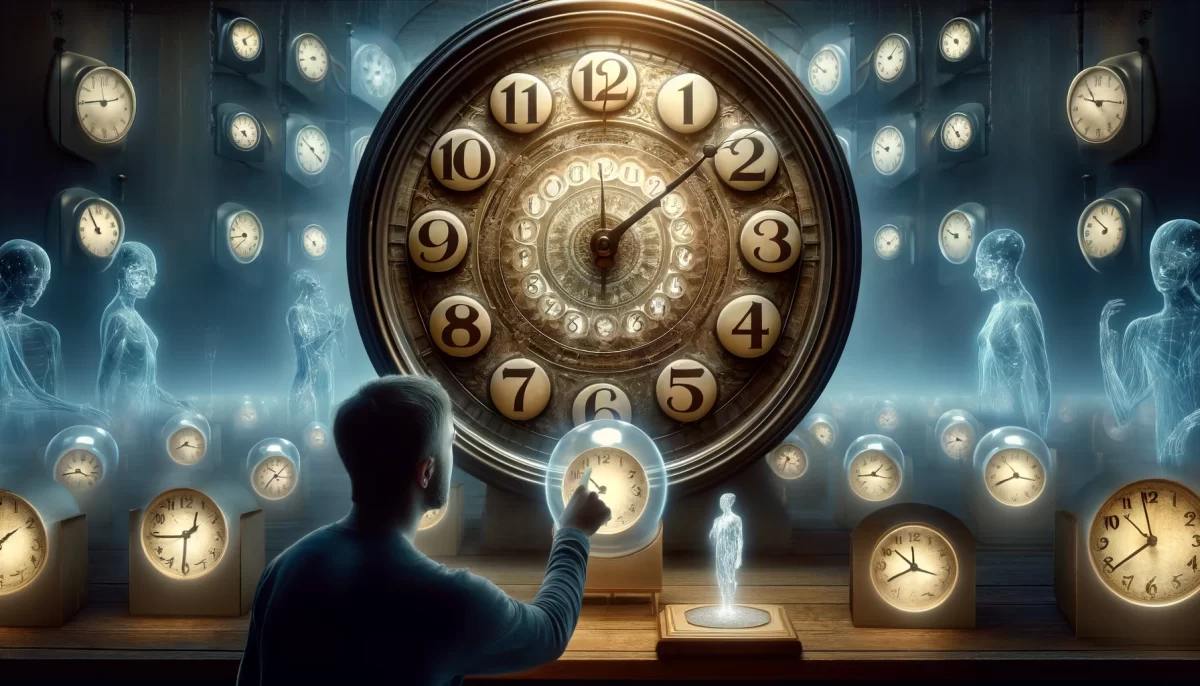
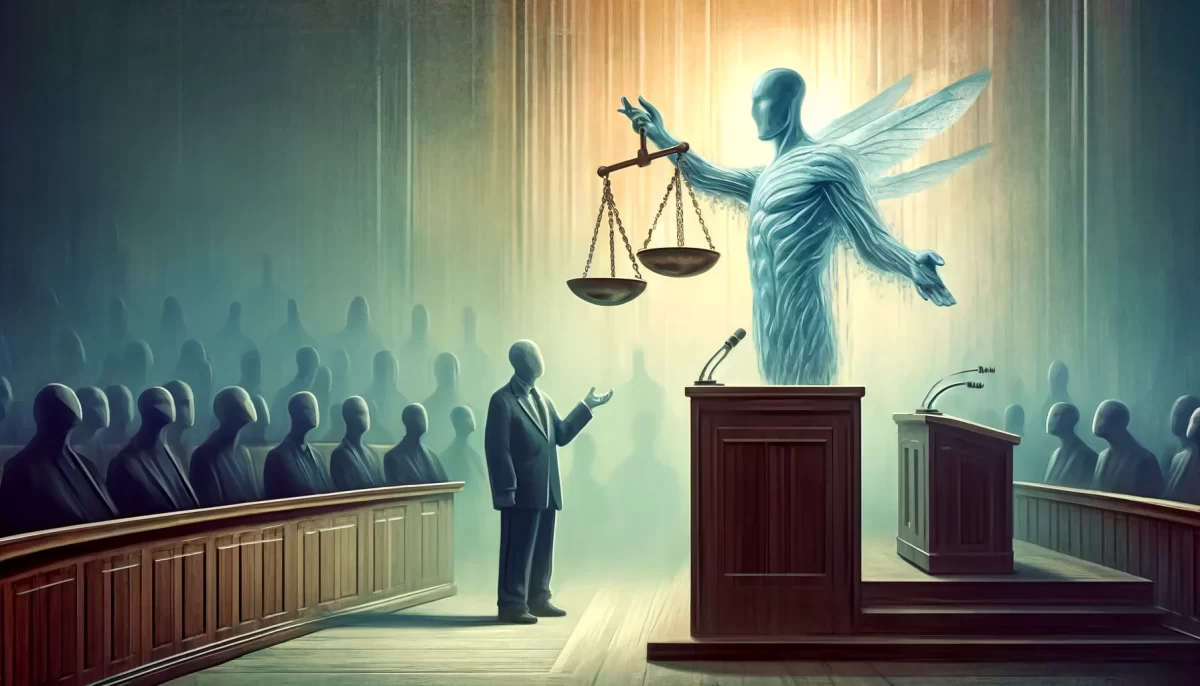

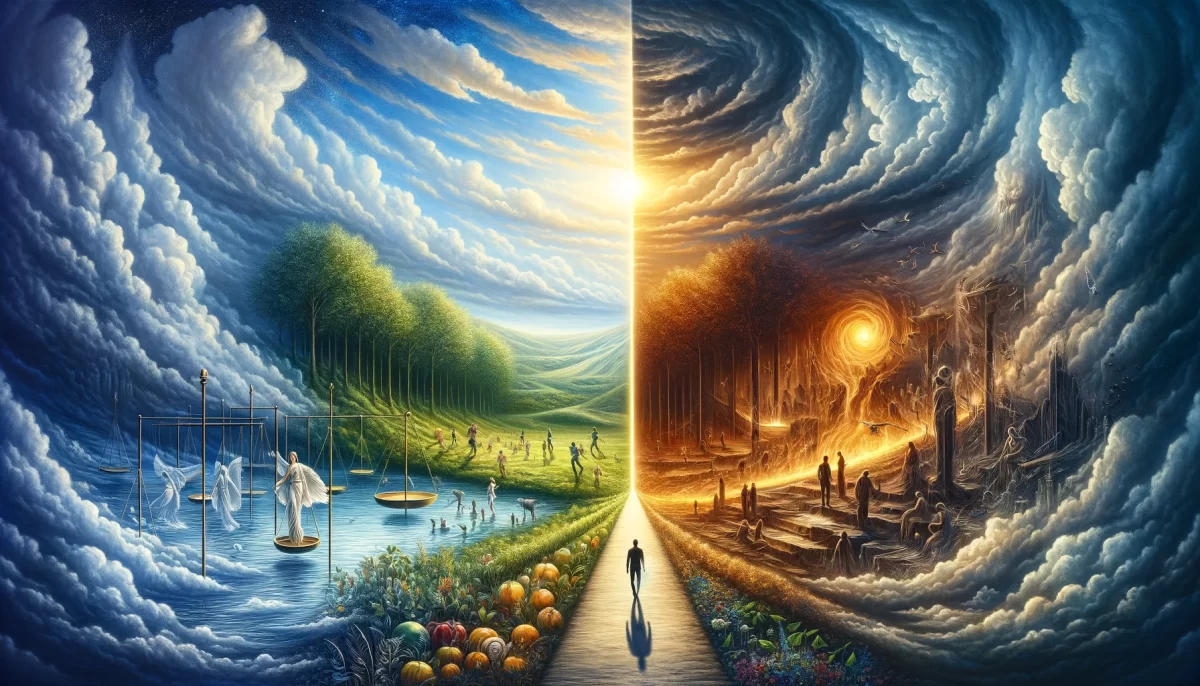

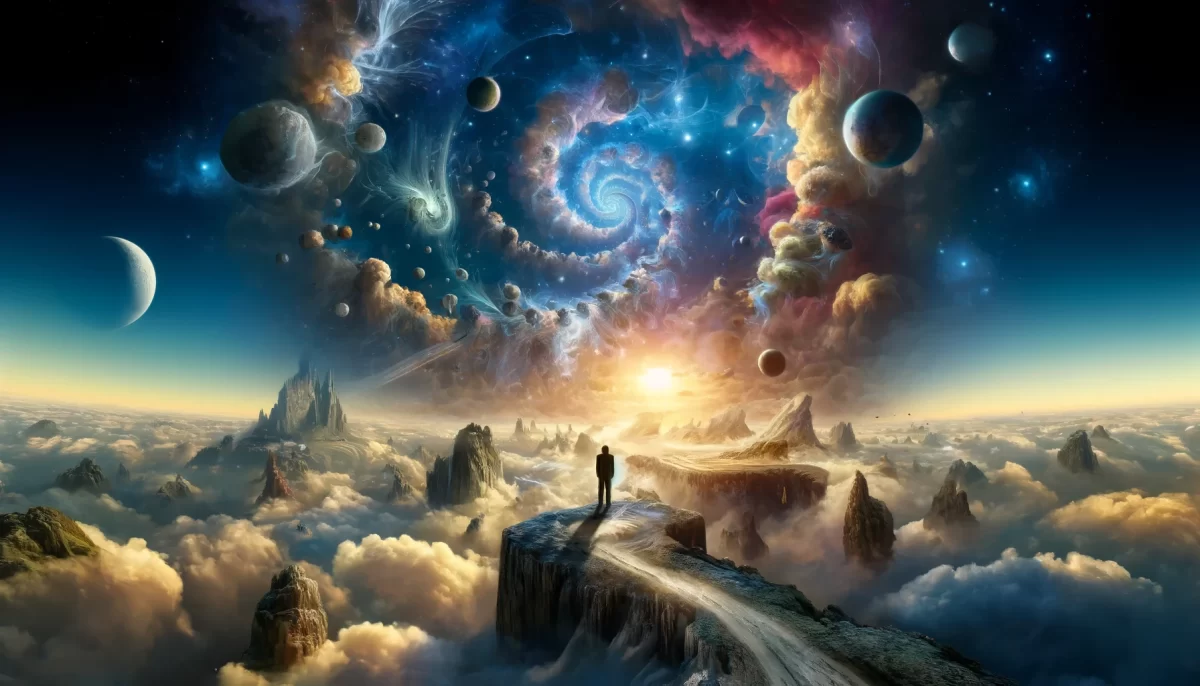


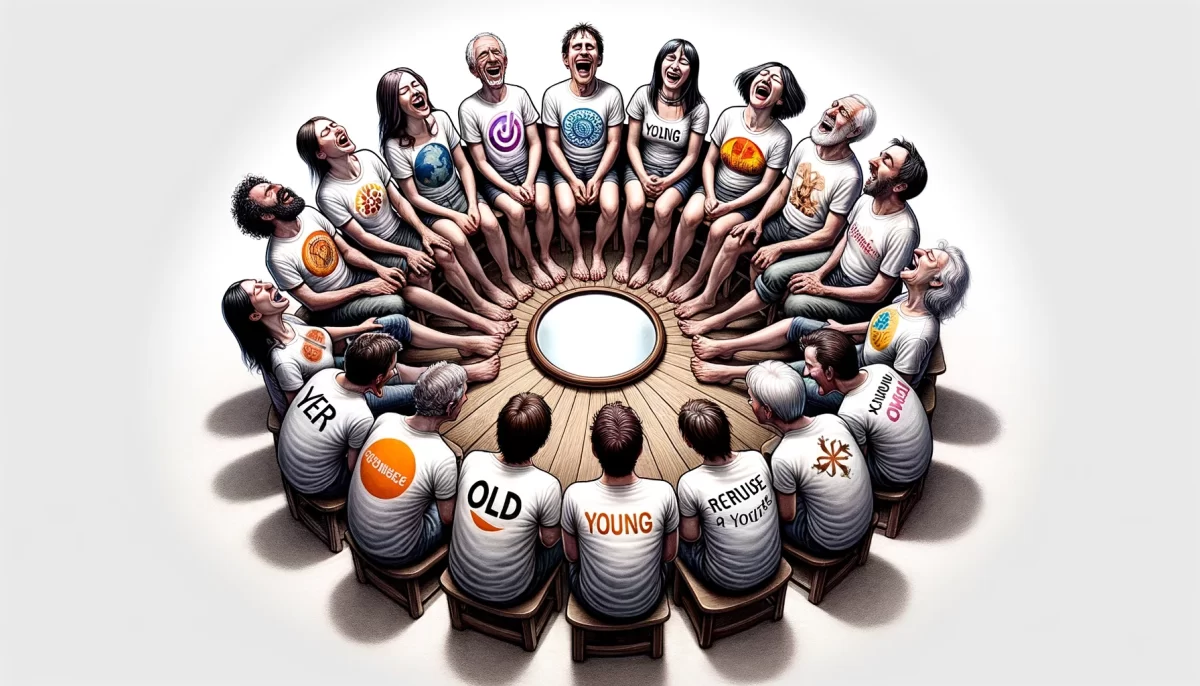
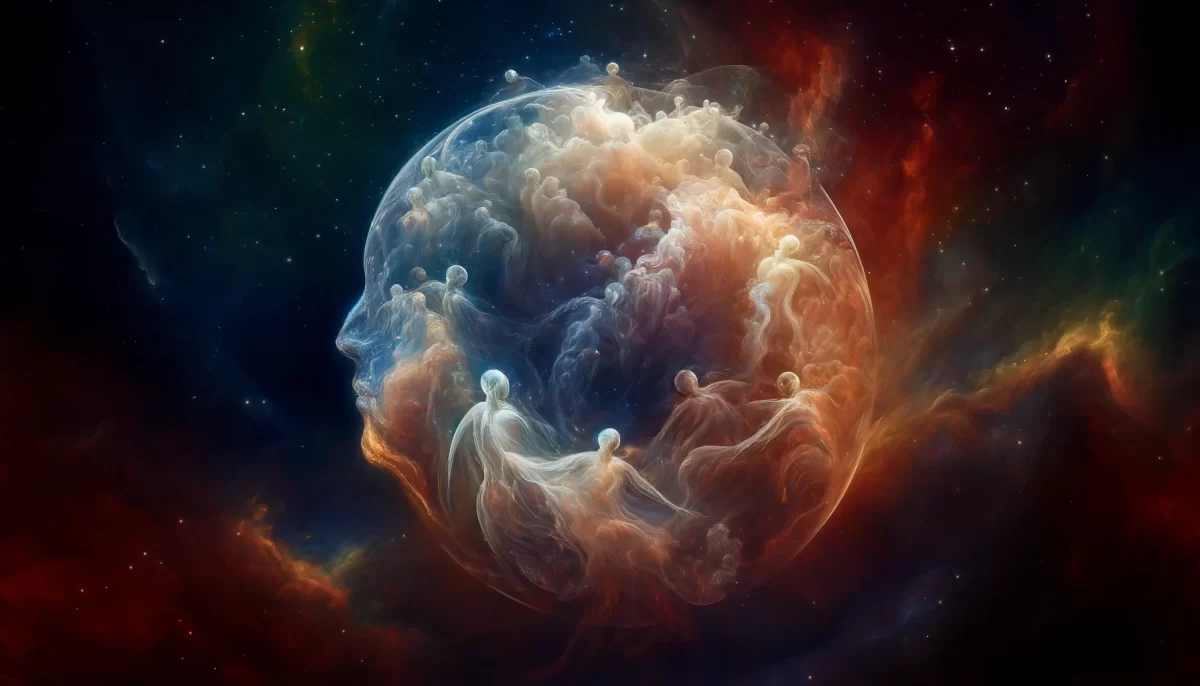
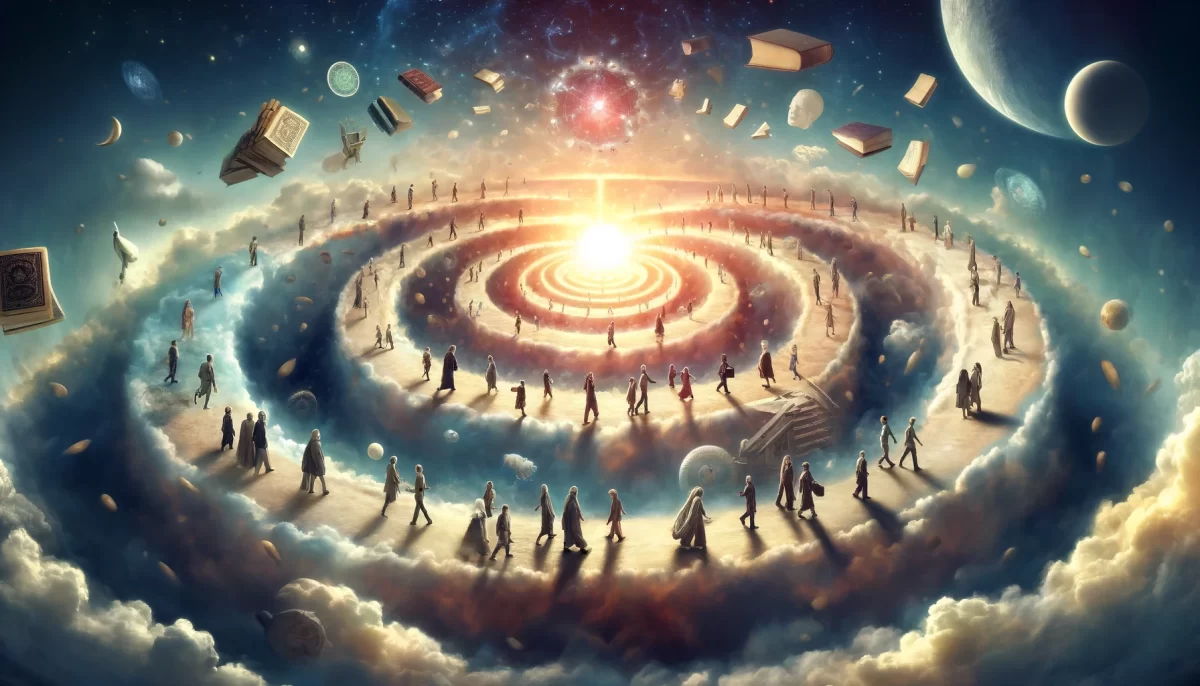

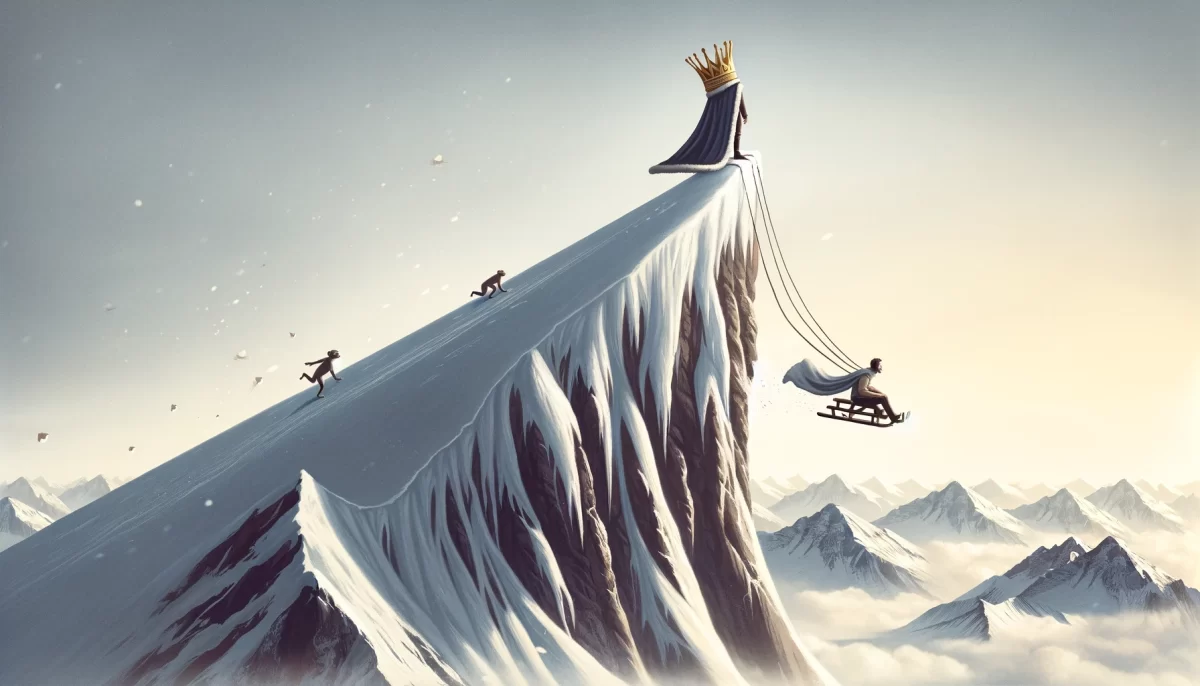
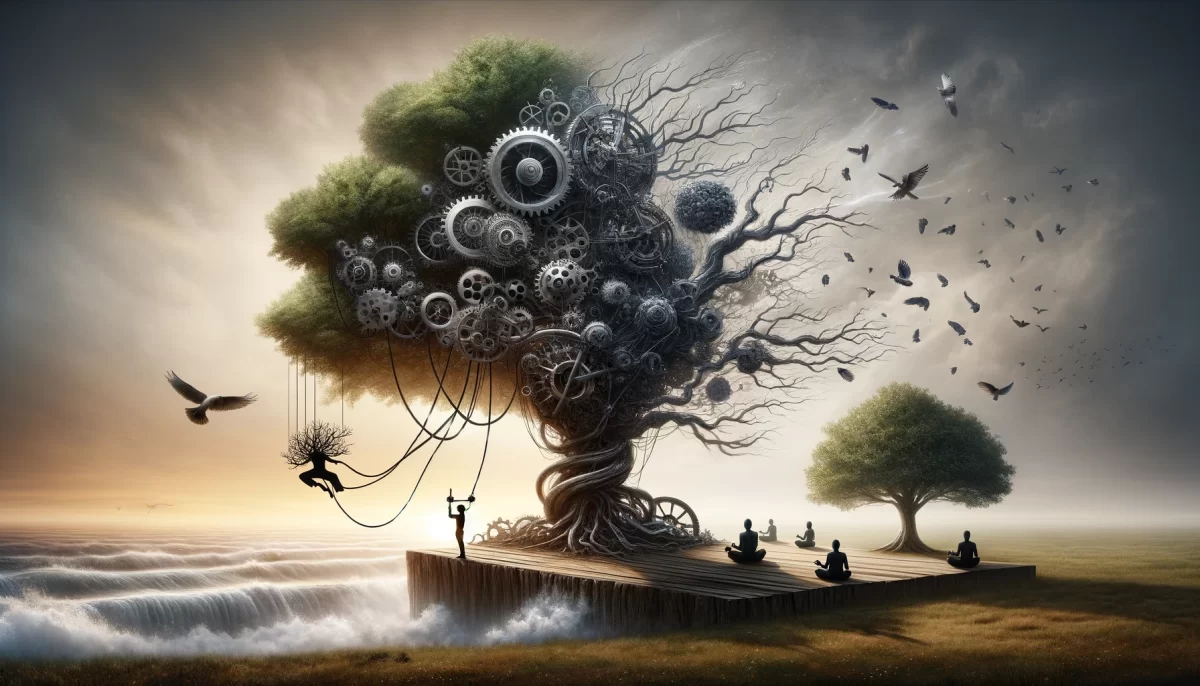

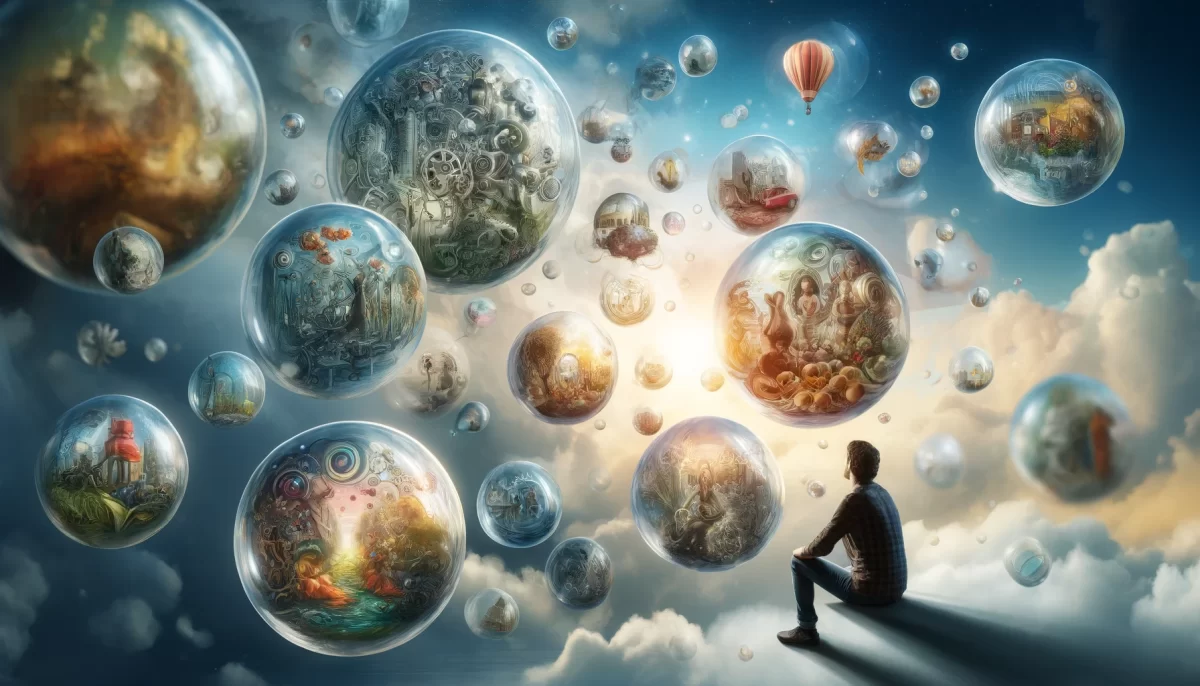
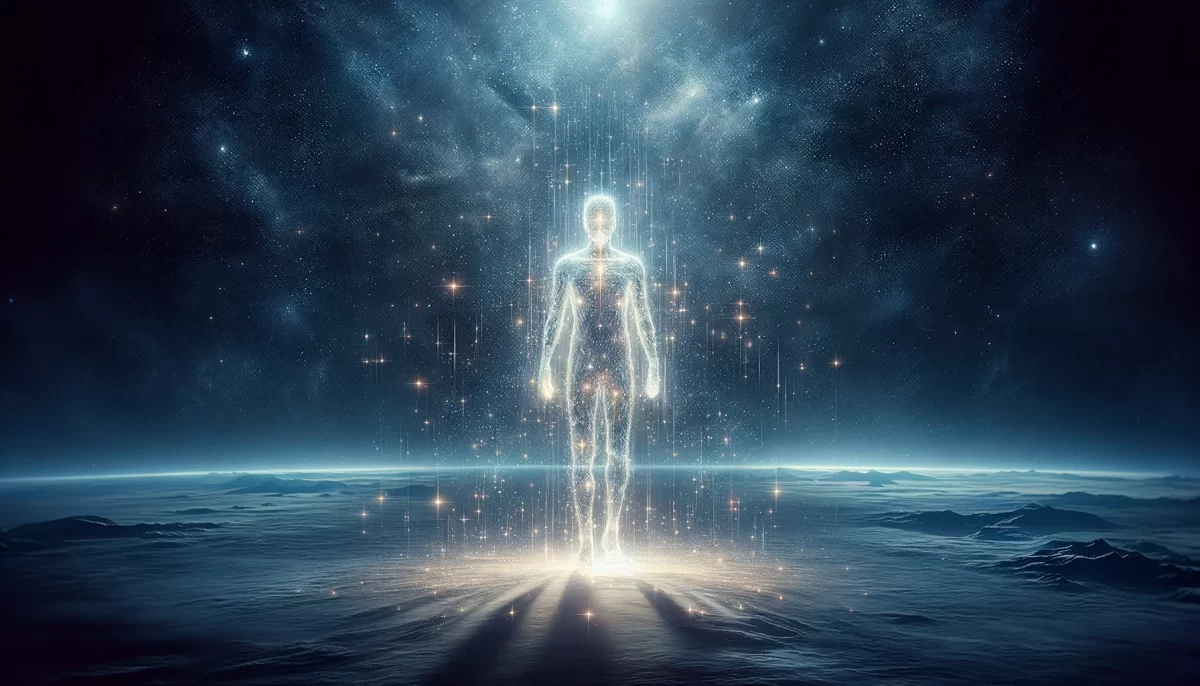




Leave a Reply